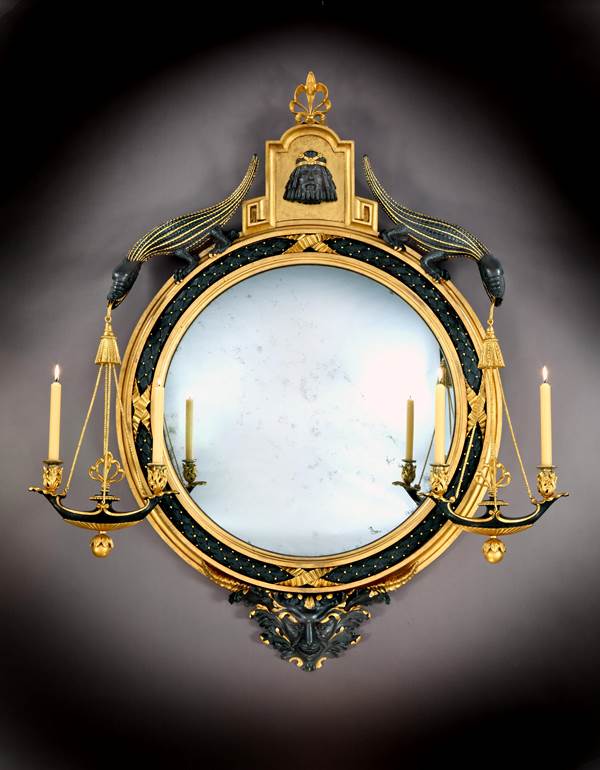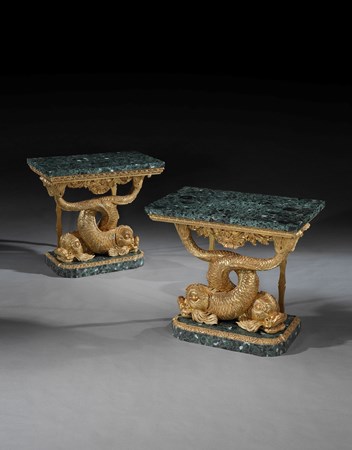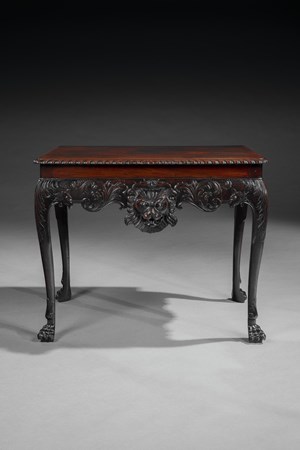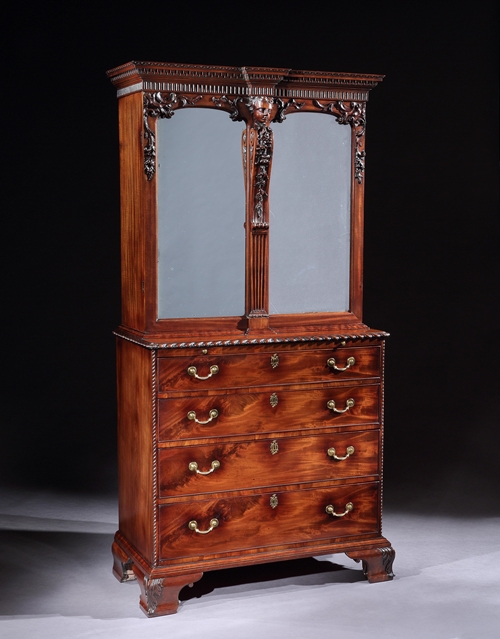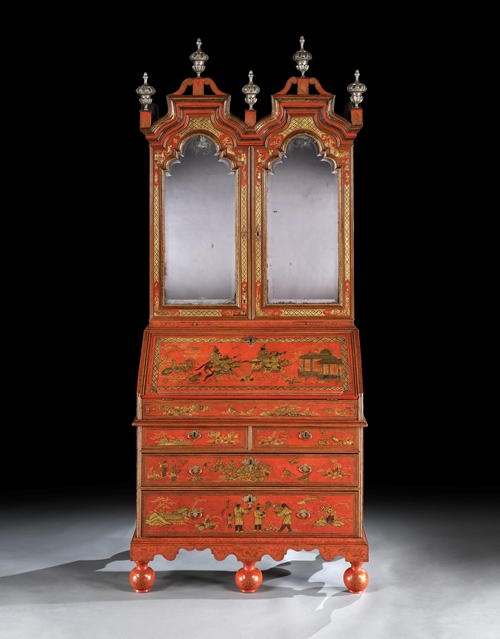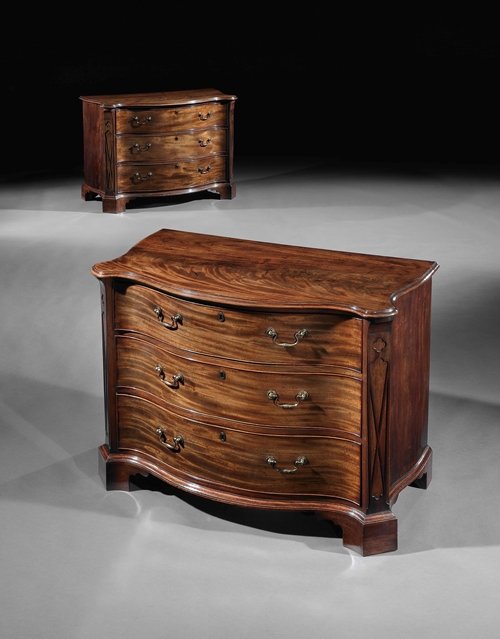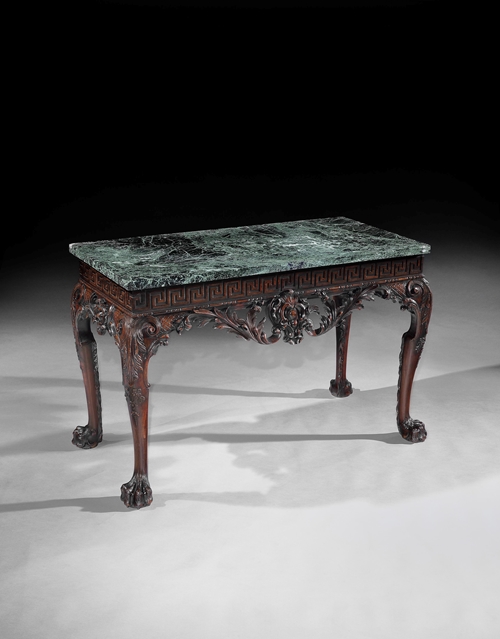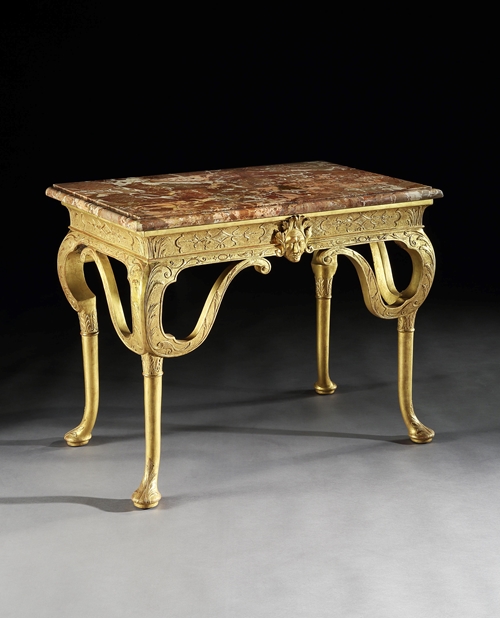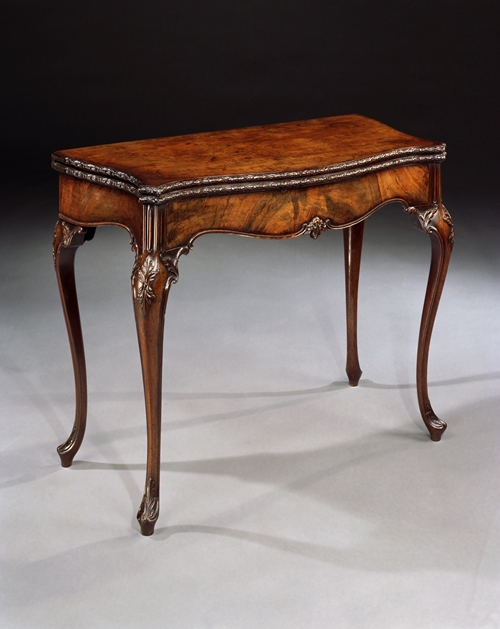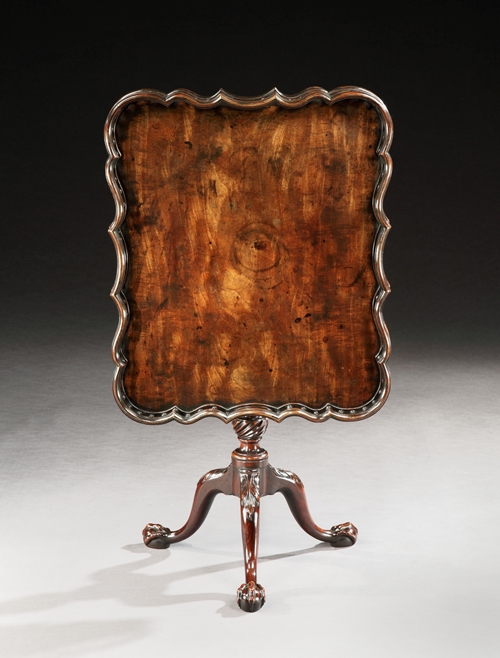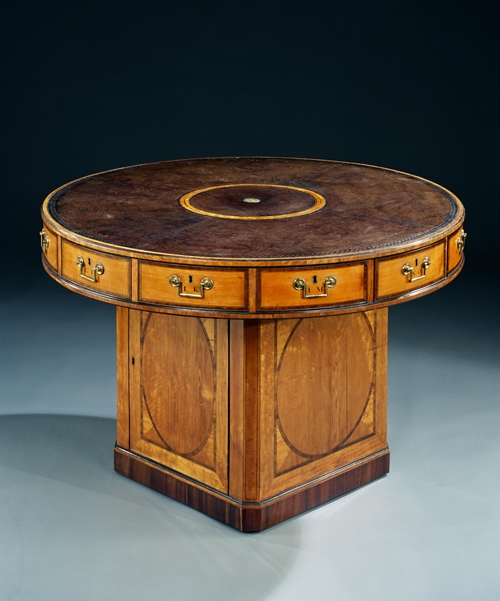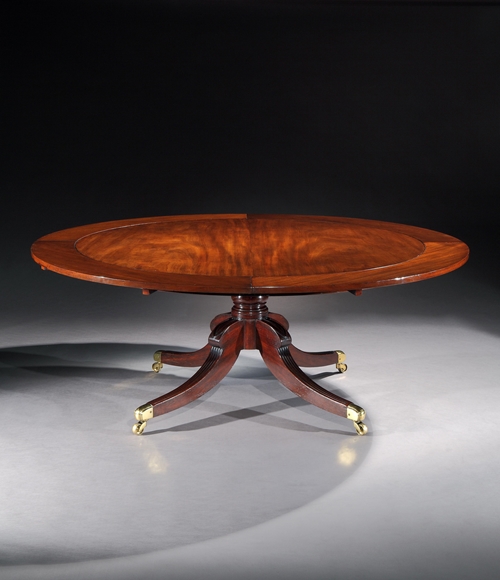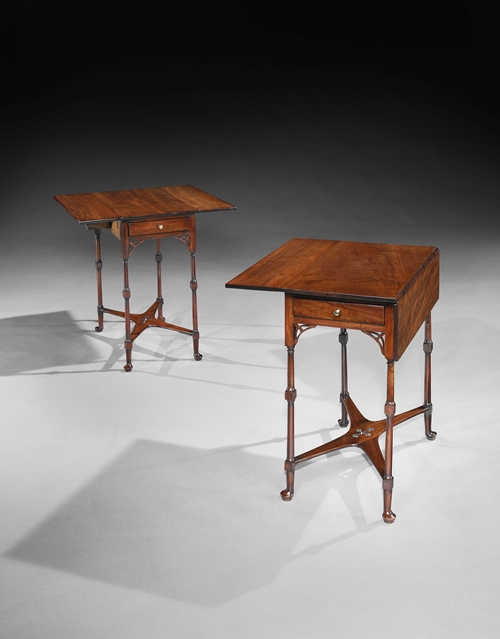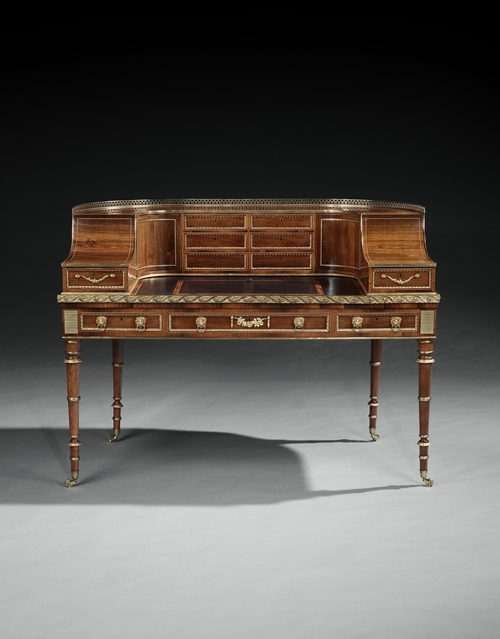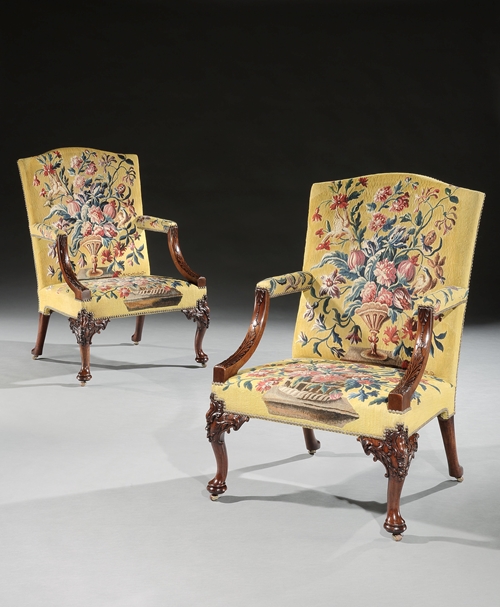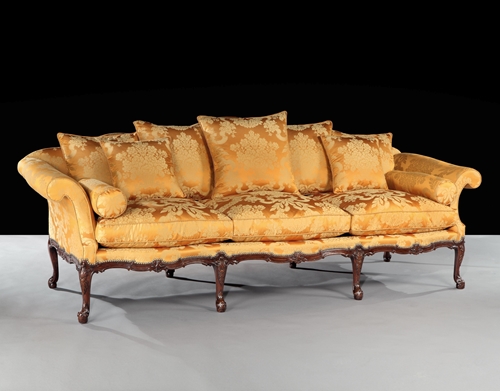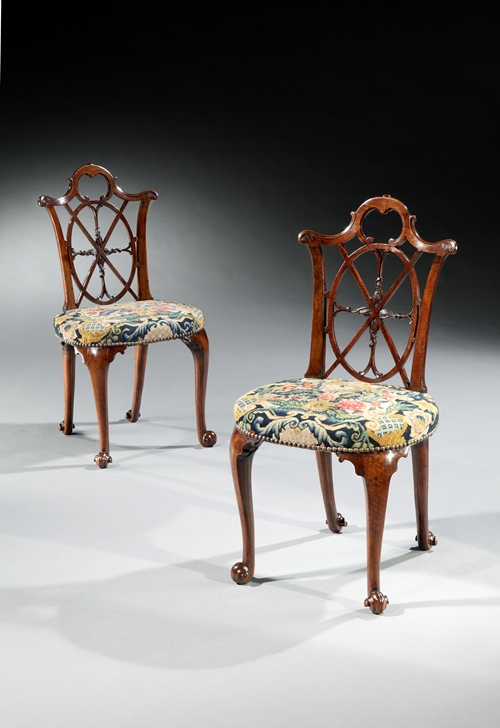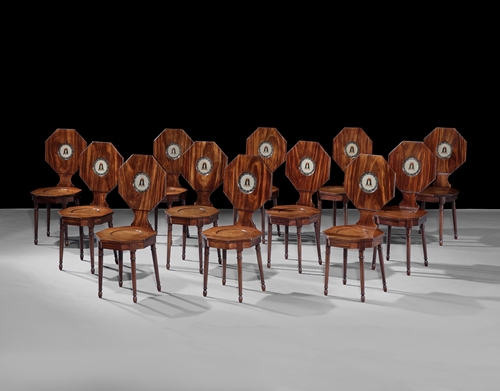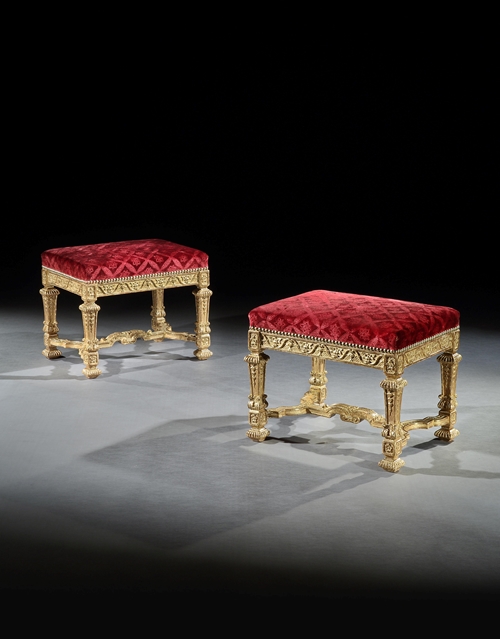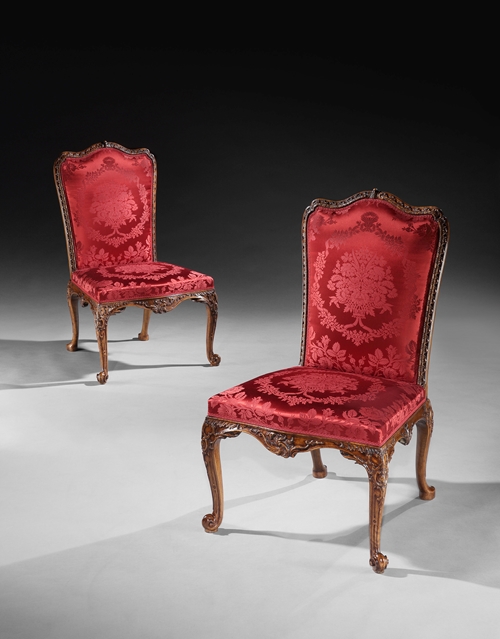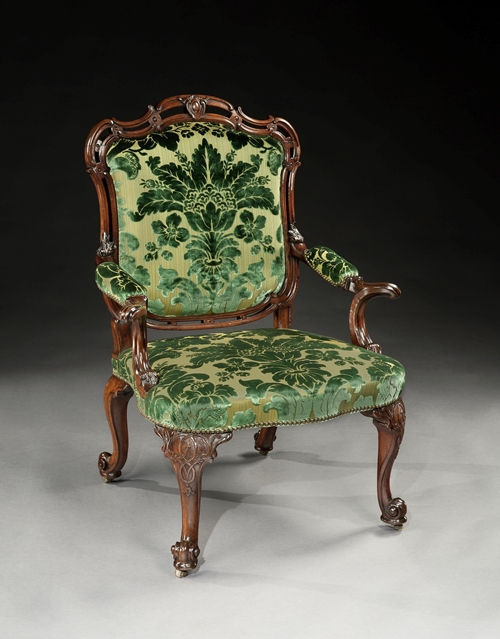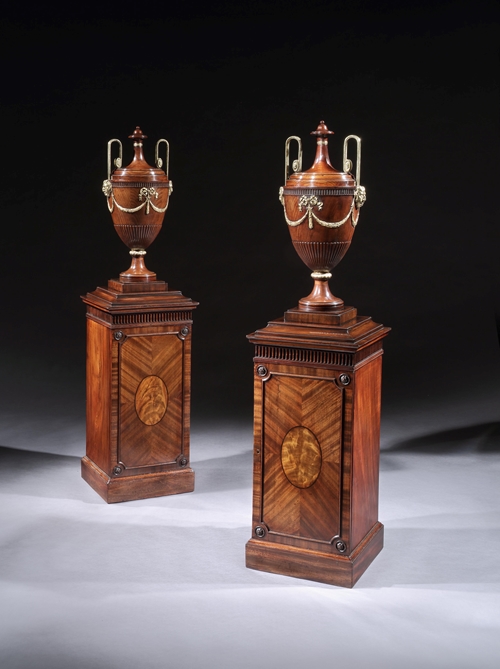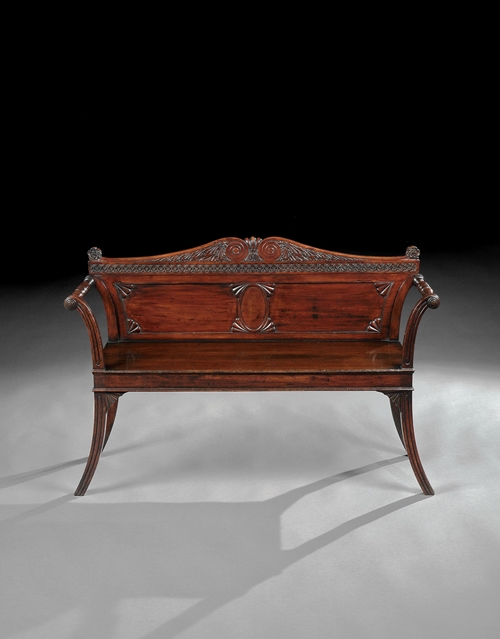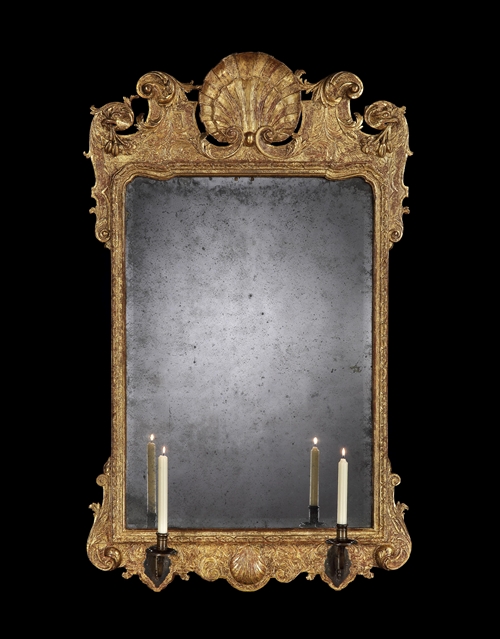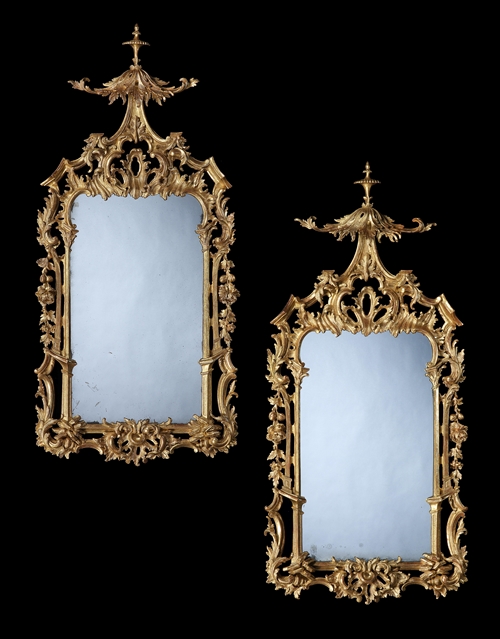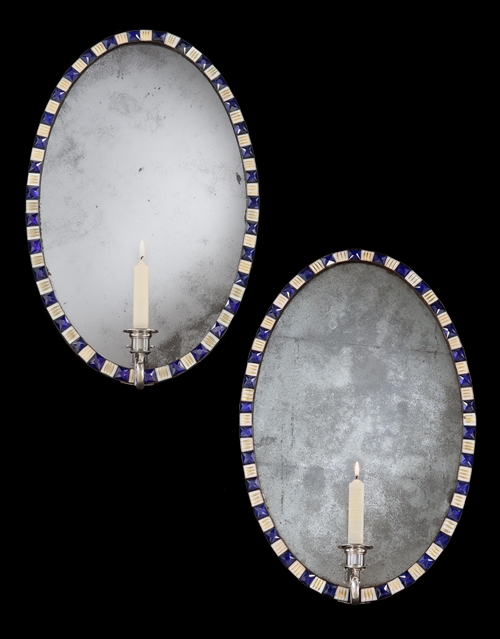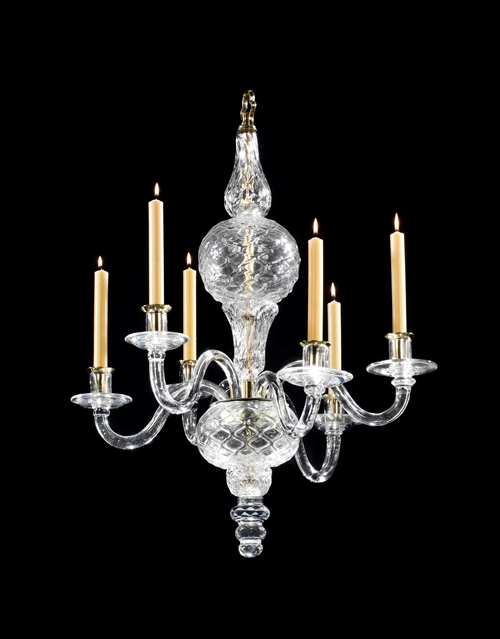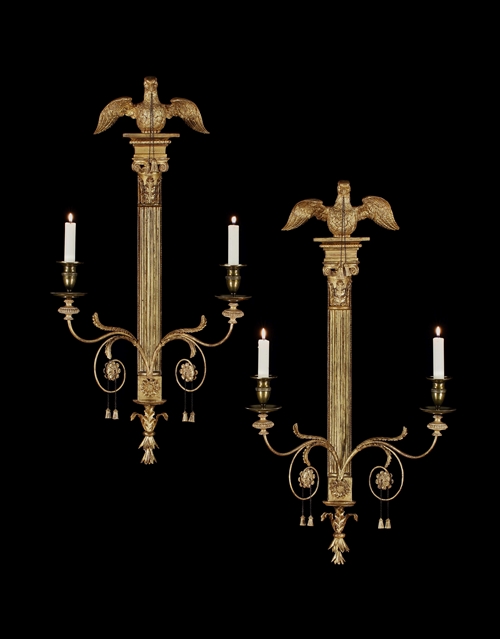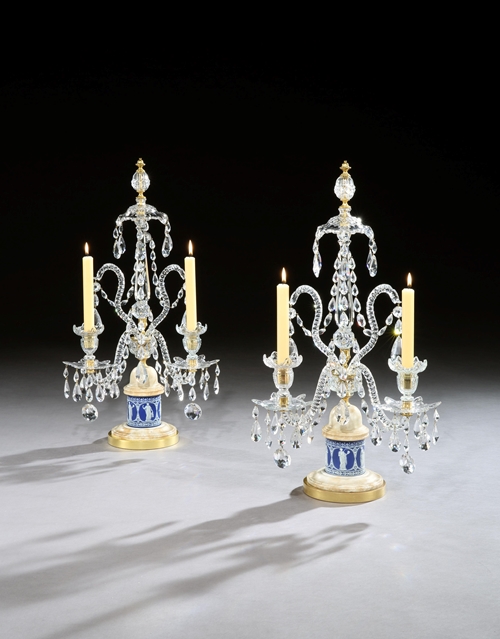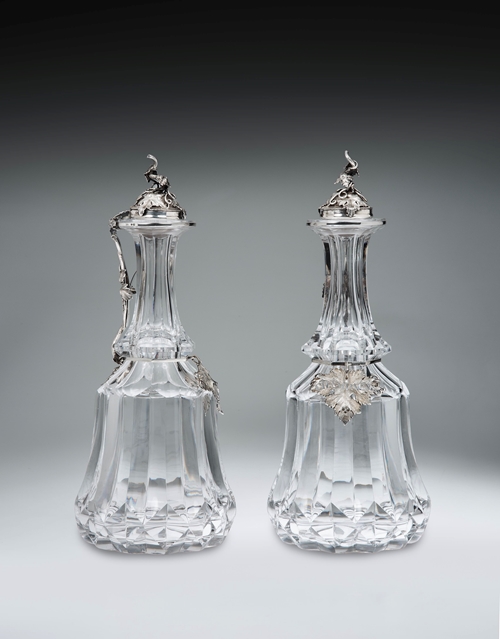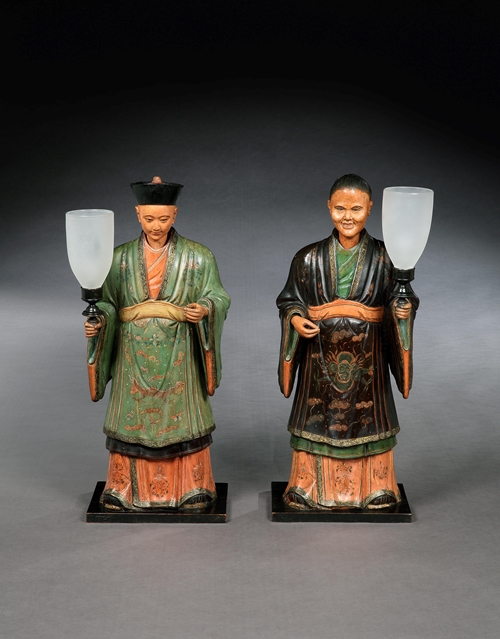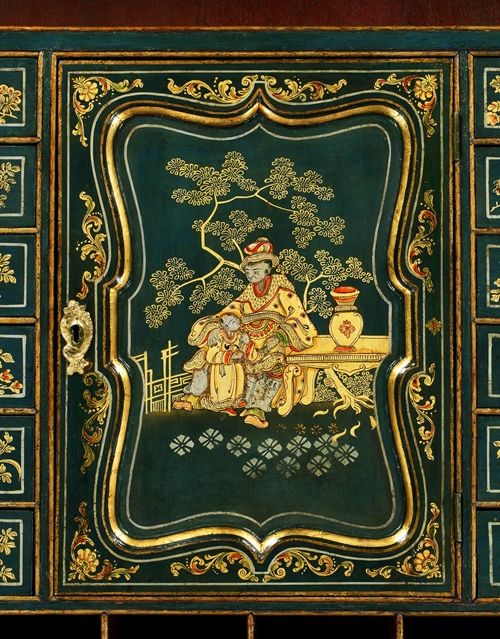An exquisitely carved late 18th to early 19th century giltwood and bronze painted convex mirror celebrating the British naval victory of the battle of the Nile retaining the original convex mirror plate and almost all the original gilding and bronze paint decoration.
The circular moulded frame with berried laurel leaf wreath front, having a pendent bronzed apron with finely carved acanthus leaf and mask centre of Faunus, ancient Roman god of the forest and crested by an anthemion topped tablet with bronzed Greek head of Dionysus, ancient god of grape harvest, flanked by opposing descending crocodiles with open mouths suspending pendant twin light candle holders in the shape of boats.
Note: A very similar mirror undoubtedly from the same workshop was formerly in the collection of West Dean.
A mirror of historical interest this fine piece celebrates the victory of the British fleet under Horatio Nelson at the Battle of the Nile in 1798 which resulted in British control of the Mediterranean waters. An immensely proud moment in British history that influenced furniture design of the time.
The decorative features used on this mirror are full of symbolism and their juxtaposition is quite astonishing. The victory is represented by the laurel wreath, Dionysus representing Greece and Faunus representing Italy whilst the crocodiles and the boat shaped lamps are reminiscent of the Nile and Egypt which was at the time under the rule of the Ottoman Empire. A mixture of exotic decoration that marks a period in English history and alludes to the Mediterranean waters and their surrounding countries. A distinctive style that was prevalent only for a fairly short period in English furniture history and eventually to be superseded by another change in design and in particular convex mirrors introducing eagles and canon balls marking the victory at Trafalgar in 1805
Looking for something similar? YOU MAY ALSO LIKE
YOU HAVE RECENTLY VIEWED ITEMS
- CAN WE HELP YOU?
- +44 (0)20 7493 2341
- [email protected]
